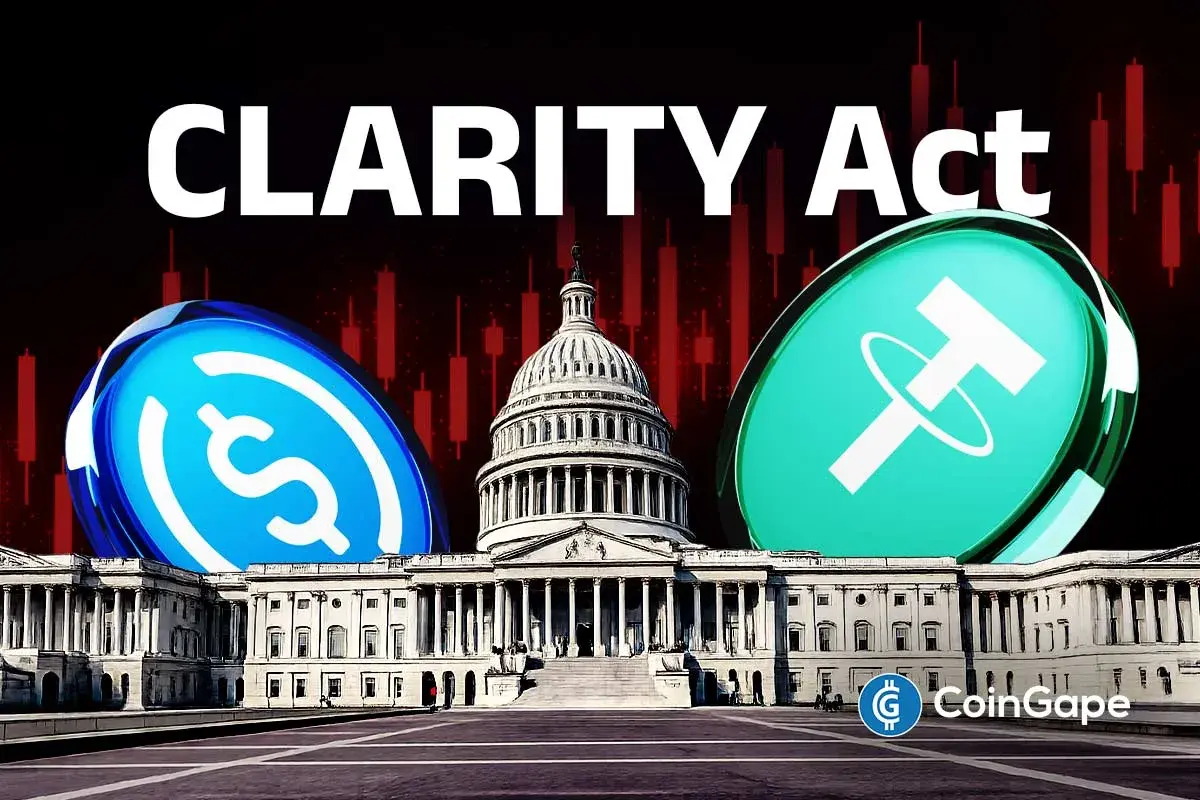Treasury and IRS Finalize Broker Rule, Defers DeFi Decision

Highlights
- IRS sets 2025 start for crypto broker tax rules, exempts small NFT and stablecoin sales.
- DeFi and unhosted wallets gain temporary reprieve as IRS delays rule finalization.
- New crypto tax rule affects 15 million people, targets compliance in digital transactions.
The US Department of the Treasury and the Internal Revenue Service (IRS) have released new tax guidelines for cryptocurrency brokers, which implements transaction reporting starting from 2025. This new regime, however, has postponed decisions on DeFi activities and unhosted wallet providers, since the IRS is still reviewing the 44,000 comments made by the public.
IRS’s New Reporting Requirements for Brokers
The new IRS rules requires the cryptocurrency brokers such as the trading platforms, hosted wallet services, and the digital asset kiosks to disclose the details of the customers’ asset movements and gains.
These rules, which will take effect from January 1, 2025, seek to integrate crypto brokers with conventional investment firms to file for the 1099 forms and the cost basis data starting from the year 2026.
A saving grace amongst all the crypto regulatory news today : at least we won't have to write a response to the final rulemaking on the IRS broker rule and non-custodial entities over the 4th of July week: pic.twitter.com/CbLfwIBoGY
— Peter Van Valkenburgh (@valkenburgh) June 28, 2024
Also, the IRS has clarified that the new requirements will also include stablecoin transactions and any high-value non-fungible tokens (NFTs), but ordinary sales of stablecoins below $10,000 and NFT gains below $600 annually do not need to be reported. This regulation is meant to enhance the compliance and decrease the evasion of taxes in the high-risk area of digital assets.
Deferred Decisions on DeFi and Unhosted Wallets
While the new rule provides clear directives for the big centralized exchanges like Coinbase and Kraken, it leaves decisions concerning DeFi activities and unhosted wallets’ providers to a later time.
The IRS added that the non-custodial industry participants would not be barred from being treated as brokers but more analysis is required. The final rules for these entities are expected to be released in the later part of the year.
The IRS highlighted the difficulties of controlling crypto wallet companies, noting that such firms may not possess the necessary customer data and transparency frameworks. This decision provides some reprieve to the DeFi sector and unhosted wallet providers as more time is bought in the formulation of better rules.
IRS Requirements for Stablecoins and NFTs
The IRS has explained that most ordinary stablecoin transactions will not need to be reported, with certain exceptions for large transactions and those generating more than $10,000 in annual revenue.
Stablecoin transactions will be recorded in a grouped manner rather than specific transactions to relieve the common cryptocurrency users while at the same time helping the IRS track whales’ activities.
For non-fungible tokens (NFTs) only those taxpayers who have earned $600 or more annually from NFT sales must file and report their total income. The IRS will require the taxpayer identification information, the number of NFTs sold, and the amount of profit made in these reports. The agency will oversee NFT reporting to ensure that it adequately helps in the enforcement of tax laws.
Industry Concerns and Compliance Burden
Introducing these tax regulations has been controversial, with significant pushback from the cryptocurrency industry. Concerns have been raised about the potential overreach of the U.S. government and the burdensome requirements on entities that do not traditionally function as brokers, such as miners and software developers.
The Blockchain Association and the Digital Chamber had flagged the overbreadth of information requested and the substantial compliance burden. They argue that the proposed rule could require the submission of billions of forms, imposing significant costs and time constraints on brokers. The IRS has estimated that the new rule will affect about 15 million people and 5,000 firms.
In response, the IRS stated that it aims to balance the need for comprehensive reporting with the industry’s capacity to comply. The agency also noted that any future changes in legislation regarding stablecoins could lead to adjustments in the tax rules.
Read Also: Digital Chamber Flags Privacy Concerns In IRS Digital Asset Tax Draft
Play 10,000+ Casino Games at BC Game with Ease
- Instant Deposits And Withdrawals
- Crypto Casino And Sports Betting
- Exclusive Bonuses And Rewards

- CLARITY Act: Banks, Crypto Yet To Agree On New Crypto Bill Draft As March 1 Deadline Looms
- Michael Saylor Predicts $50T From Bonds Could Flow Into Bitcoin Ecosystem as Digital Credit Evolves
- Bitcoin Treasury Firm GD Culture Authorizes Sale of 7,500 BTC as Expert Warns Of More ‘Pain’
- USDT And USAT Get Adoption Boost as Tether Invests in Whop for Faster Settlements
- BTC Price Rises as U.S. Plans to Hold Trump Tariffs on China Steady
- Ethereum Price Reclaims $2K- New Rally Ahead or a Temporary Bounce?
- COIN Stock Price Prediction as Wall Street Pros Forecast a 62% Surge
- Cardano Price Signals Rebound as Whales Accumulate 819M ADA
- Sui Price Eyes Recovery as Third Spot SUI ETF Debuts on Nasdaq
- Pi Network Price Eyes a 30% Jump as Migrations Jumps to 16M
- Will Ethereum Price Dip to $1,500 as Vitalik Buterin Continues Selling ETH?

 Buy Presale
Buy Presale

















